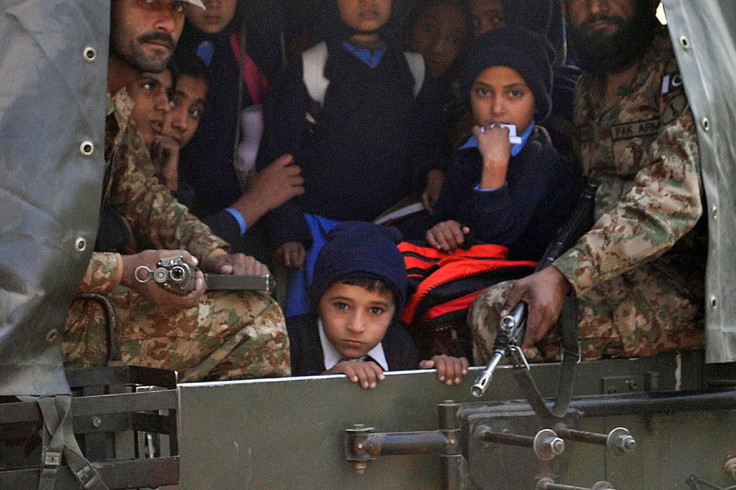Peshawar school massacre: Girl-hating Taliban attack 1,000 'un-Islamic' Pakistan schools in last five years

The Peshawar school attack in which at least 130 people, mostly children, were killed by the Taliban is not the first one carried out by the insurgents.
It is believed the latest attack was conducted to discourage military activity in the area. Some have also argued the attack was in revenge for Pakistani children's rights activist Malala Yousafzai being awarded the 2014 Nobel Peace Prize.
However, reports by human rights groups have suggested that the militants have attacked at least 1,000 schools in the past five years.
A 2014 report by the Global Committee to Protect Education from Attack found that in Pakistan "there were 838 or more attacks on schools during 2009-2012, more than in any other country, leaving hundreds of schools destroyed.
"When the Pakistani Taliban did gain control of the Swat Valley, they first banned girls'
education and banned women from teaching, through an edict in December 2008, and later amended their edict to permit the education of girls, but only up to grade 4."
A June 2014 report by the International Crisis Group stated that the Taliban often target educational institutions, particularly girls' schools, as they are against education, which they see as a "promotion of Western decadence and un-Islamic teachings."
Malala herself was the target of an attempted homicide by the Taliban, who tried to kill her for her promotion of education to women and children in Pakistan.
The activist, the youngest ever Nobel Prize winner, was shot in 2012 on a school bus in the Swat valley, in the Khyber Pakhtunkhwa province, of which Peshawar is the capital.
"Militant jihadi groups have destroyed buildings, closed girls' schools and terrorised parents into keeping daughters at home," the report said. "More than nine million children do not receive primary or secondary education, and literacy rates are stagnant. Pakistan is far from meeting its Millennium Development Goal (MDG) of providing universal primary education by 2015."
In 2012, Human Rights Watch urged the Pakistani government to take "immediate steps to protect students and teachers".
"Parts of Pakistan are among the most dangerous places in the world to go to school today," said Ali Dayan Hasan, Pakistan director at Human Rights Watch. "It's time Pakistani authorities understand that expressions of outrage alone are inadequate and such attacks will only end if they hold abusers accountable."
© Copyright IBTimes 2025. All rights reserved.






















